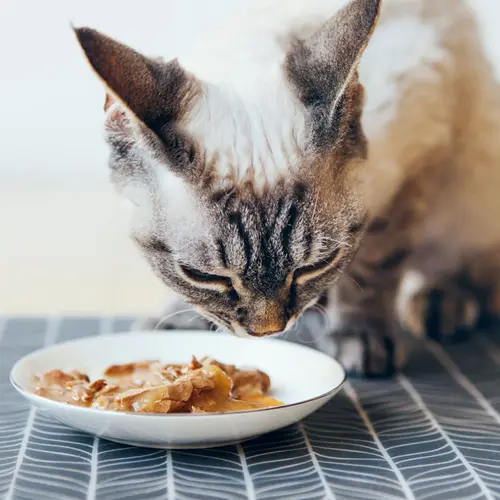Cat dehydration happens when there is excessive fluid loss from the cat’s body. When this occurs, it’s not just water loss. It is also a loss of some essential minerals in their body like chloride, sodium, and potassium.
Water is essential to your cat’s health. It helps it maintain good health and replace the fluids that they lose through their urine and feces. Water is also necessary for your cat’s circulation, digestion, and waste removal. If dehydration is left untreated in your cat, the condition can lead to other severe medical concerns.
What Causes Dehydration in Cats?
Dehydration in cats is typically caused by the cat not drinking enough water or by excessive water loss. Cats can also lose moisture by sweating small amounts through their paws but this does not usually cause drastic water loss. Dehydration could be brought about by many different factors like:
To help your cat maintain healthy hydration, ensure that they can always access fresh water in a clean bowl every day.
How Much Water Does My Cat Need?
Your cat needs a daily amount of about 3.5 to 4.5 ounces of water per 5 pounds of their body weight. For instance, if you have a 10-pound cat, they should be drinking between 7 to 9 ounces of water daily.
If the cat eats wet food often, you may notice that it doesn’t drink as much water. That’s because the cat is consuming water when they eat. Wet food is made of up to 80% water.
Cats who primarily eat dry food, on the other hand, won’t consume as much water from their food. They need to get hydrated by drinking from their water dish.
What Are the General Symptoms of Dehydration in Cats?
Make sure that your cat is getting enough water as a part of their daily diet. If the cat is not getting enough water, they may become dehydrated.
Some signs of dehydration in cats include:
- Loss of energy
- Panting
- Refusal to eat
- Sunken eyes
- Tacky and dry gums
‘Skin tenting’ is a good test to help you determine if your cat is dehydrated. To do this, gently take a small portion of your cat’s skin around their shoulders, pull it up, and then let go.
If your cat is hydrated, the skin will snap back into place quickly. If the skin falls back down slowly, your cat could be dehydrated. If your cat’s skin remains up in a tent position and does not fall back down, it can be a sign of severe dehydration. In cases like this, you should seek medical care for your cat right away.
What Should I Do if My Cat Is Dehydrated?
Dehydration is often a sign of a serious underlying medical condition in cats. If you suspect that your cat is dehydrated, contact your veterinarian for help right away.
In the meantime you can try some home remedies to rehydrate your cat:
- Add a small amount of chicken broth or tuna juice to their water.
- Instead of dry food, try giving them wet food.
- Place some ice cubes in their water bowl.
You must get to know your cat’s food and water preferences. For instance, some cats like drinking water from a water dish while some like using a cat fountain. You want to try to encourage them to drink. However, you should never force them.
Are Certain Cats Prone to Dehydration?
Generally, cats that have been diagnosed with another illness and older cats are more prone to dehydration.
For instance, if your cat is experiencing cancer, diabetes, hyperthyroidism, or kidney disorder, it is helpful to talk with your veterinarian about how to maintain healthy and ideal hydration levels for your cat.
How Is Dehydration Treated?
A quick procedure your veterinarian can perform involves them giving the cat fluids under the skin. In severe cases, your veterinarian can recommend hospitalizing your cat and giving them fluids through a catheter that goes directly into the cat’s vein. This method can usually rehydrate your cat within a few hours or days.
Your veterinarian will also diagnose the underlying reason for your cat’s dehydration and help you nurse them back to health.
How Can I Prevent Dehydration In My Cat?
There are a few ways that you can help prevent dehydration in your cat. Some options include:
- Clean out and provide fresh water in water bowls every day.
- Provide multiple clean water sources around your house for the cat to drink from.
- Try giving your cat an electrolyte supplement or meat-flavored water from a trusted pet food store.
- Use a cat water fountain with fresh water to encourage them to drink.
If your cat appears to be dehydrated or seems hesitant to drink, it's important to get them to the vet right away. Dehydration in cats can lead to several serious medical concerns that should be addressed as soon as possible.

